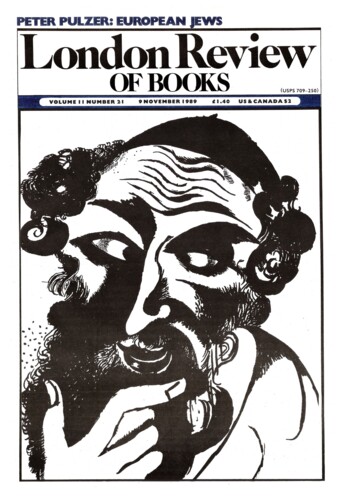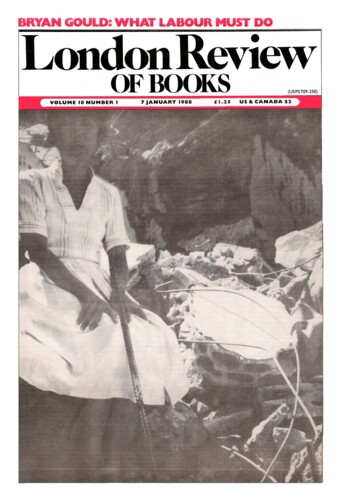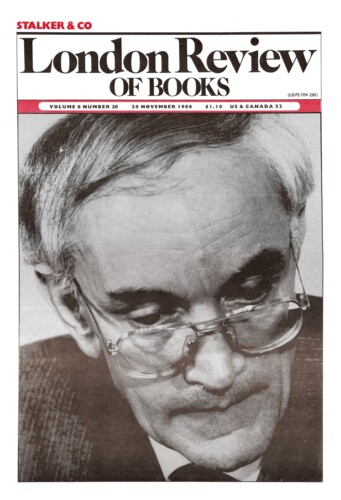Someone else’s shoes
Geoffrey Hawthorn, 23 November 1989
As Brian Barry suggests, the question of justice arises when custom loses its grip; when the prevailing social myth and what Stuart Hampshire calls its ‘fallacy of false fixity’ – that relations cannot be other than they are – is exposed. This is not to say that new fixed entities are never then proposed to replace the myth. Plato’s divisions of the soul and their reflection in the state, the liberals’ titles rooted in first possession, the Marxists’ resolution of real contradictions, and Moore’s directly intuited Good are only four of the more notorious past instances. But even if we were to regard suggestions of this sort and the arguments to support them as more than an intellectually elaborate way of ‘thumping on the table’, which Barry does not, they would, as he says, still leave us with the old puzzle of ‘how moral judgments can provide us with reasons for acting if they consist of reports about the existence of a peculiar set of objects’. They would leave us with ‘no sufficient place’, as Hampshire puts it, ‘for the distinction between theoretical reason and practical reason, between thinking about actualities and thinking about possibilities’. They are suggestions of a kind for which neither writer, quite rightly, has time.’





